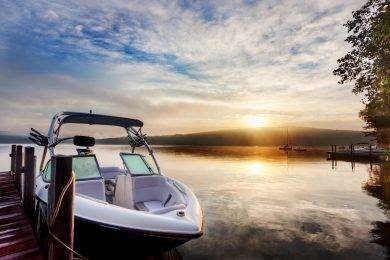Do you love getting out on the water for recreation or exercise? Are you thinking about buying a boat?
Purchasing your own boat gives you a great way to get in shape and have fun with your family. You’ll also have the perfect entertaining vessel if you like to host parties. Apart from this, visiting this link would be ideal if you are looking for the best shallow water river jet boats.
Yet a boat is an important investment, and you won’t want to buy one impulsively. Making a smart purchase involves research, careful thought, and a little vision.
Here are some of our favorite boat buying tips.
1. Total Cost
Folks who are serious about buying a boat may begin their search by comparing the costs of different vessels. Yet the total cost involved in owning a boat is so much more than the craft itself.
You’ll need insurance for your boat, as well as winter storage if you live in a colder climate. Your boat will also require regular maintenance every 100 hours or annually.
A professional will need to check your boat’s engine, hull, and topsides. You should also have your electrical systems, HVAC, and moving parts inspected.
You’ll also need to fuel your boat if you use it regularly. In addition, you’ll need to think about taxing, registration, and docking. Fair annual upkeep for all boat upkeep is around $4,300.
If you’re serious about owning a boat, you’ll need to remember that your costs will add up each year. Make sure you’ve got enough budgeted for upkeep before you make your purchase.
2. New Vs. Pre-Owned
You’re going to need to make a choice between a new or pre-owned vessel before you purchase.
Naturally, a used boat will be less expensive. It will probably also suffer less depreciation since some of it has already happened.
When you buy a new boat, you’ll likely be paying more for the vehicle but less in maintenance as time goes by. It’s also fun to customize your new boat to your liking, such as choosing your own boat tower accessories. Carefully consider what you can afford, as well as ongoing costs, before making this decision.
3. Types of Boats
You’ll want to the advantages of different boat types before you purchase as well. Jet boats, for example, can operate in very shallow water because there are minimal draft and no propeller that could get damaged on the bottom. Cabin cruisers offer a comfortable ride in rough waters and include a generator that can help you use all accessories. Rigid inflatable boats or RIBs, are more powerful, faster, lightweight, and easy to maneuver. You can check out ribs for sale here.
You’ll want to consider your activity types before choosing a boating type. Are you looking to fish, cruise, or entertain several families? Talk to your local boat dealer about the boat types that will help you get the most out of your purchase.
4. Boat Loans
Many folks choose to finance their boats rather than pay for them outright. Your dealer may finance the purchase, or you may be able to get a loan with good terms from your bank or credit union.
The interest you’ll pay, as well as your loan terms, will vary depending upon the size of your loan, your lender, and your credit score. If you’re financing you’re boat, you’ll need to consider how it fits into your budget along with other boating costs. In addition, it’s important to think about its resale value.
5. Inspection
Before you purchase a boat, you’ll want to have a thorough inspection performed to make sure there are no major problems at the onset. A professional can check your electrical system, steering systems, and engines.
Marine surveyors can check out your boat from top to bottom the way a home inspector would. You should also take your boat for a test drive before you buy.
6. Insurance
Boat insurance isn’t mandatory in every state, but it’s generally considered a good idea. Insurance for your boat can help pay for damages to someone else’s boat or dock if you get into an accident. It can also help cover medical expenses for injuries.
The actual cost of your insurance will depend upon a number of factors. These include your boat’s value, location, and usage type. It will also be influenced by factors related to the craft itself, including its number of engines and horsepower.
No boat is completely immune to accidents or mishaps, and there are always natural disasters to consider. If you want to protect your investment, shop around for a good rate on boat insurance and get whatever coverage you think you’ll need.
7. Time
Purchasing a boat can be a wonderful investment for an individual or family that loves to be out on the water enjoying the benefits of sunshine and fresh water. It’s also important to know that someone in your party is comfortable driving the boat a lot.
Purchasing a boat is a big decision, so you’ll want to know that you’ll get maximum use out of your purchase. If you think you’ll only really be getting out on your vessel once every month or every few months, purchasing a boat may not be the wisest move. In these cases, it may be best to rent occasionally.
If, however, you’re retired or have a very flexible schedule, a boat could be a good investment. You’ll be able to get the maximum benefit from your craft if you’re using it at least once a week.
Buying a Boat
Buying a boat is an important decision, and it isn’t one you’ll want to make impetuously. Consider factors like upkeep, insurance, and usage when weighing whether or not it’s the right move. If, however, you’ve decided that it’s going to be a financially sound decision that will benefit your whole family, it’s time to find the boat of your dreams and sail on.
Don’t stop getting smart about your lifestyle now. For more great advice, read our blog today.











